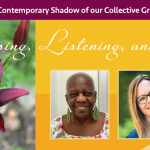
Pornography Does Not Stop With Sexploitation.
 Sometimes a word gets stuck in a groove of familiarity and is then limited to just one definition or description. But we learn from the Merriam-Webster on-line dictionary that pornography can also refer to “a depiction of acts in a sensational manner so as to arouse a quick intense emotional reaction.” It goes on to affirm that in the early 1950s the phrase “the pornography of violence” gained wide-spread usage.
Sometimes a word gets stuck in a groove of familiarity and is then limited to just one definition or description. But we learn from the Merriam-Webster on-line dictionary that pornography can also refer to “a depiction of acts in a sensational manner so as to arouse a quick intense emotional reaction.” It goes on to affirm that in the early 1950s the phrase “the pornography of violence” gained wide-spread usage.
This connection between pornography and violence leads me to the outrage felt across the United States and 18 other many nations at the brutal killing of George Floyd by a member of the Minneapolis Police Department.
In just one photograph showing a prone defenseless Mr. Floyd, is an image of such power, what I am calling a pornographic image, is what has incited a global protest movement for change. As many have said, the knee of a white man on the neck of a black man has been replaying infinitely, for 400 years.
Each of us is outraged in shared ways and in individual reactions by the pornography of the photo. My own response, shared by many is deeply visceral; the image inflicts a deep moral wounding on any human being who has the capacity and will to feel compassion for the suffering of another. Unfortunately, and for a myriad of reasons, that compassion can be suffocated by anything from an ideology that stops human feeling to self-loathing, to self-alienation, to greed for power and control.
My other impulse to recoil from its brutality came from the particular detail of officer’s hands in his pockets, his posture of casualness, his demeanor, his body language that bespoke “I’ve got this; no worries. All is under control.” His hands in his pockets expressed the behavior of a monster out of control. He seemed to me to be enjoying making another human being suffer. This too expresses the grim face of pornography.
The pornographic imagination seems to seek a number of common goals: turn the other into something less-than-human; dominate that other, be it an individual, a race, an ethnic group, or those who disagree with you—the pornographic need—and for some it is a need that is a distorted desire to love—spreads its wings and can cover a host of subjects; master the other in no uncertain terms. Call it what you will: restoring order, following orders, getting the job done. But dominate.
Susan Griffin’s brilliant study, Pornography and Silence: Culture’s Revenge Against Nature (1981) reveals that when the pornographic imagination silences voices of dissent, something alarming happens: “Language ceases to describe reality. Words lose their direct relationship with actuality. And thus language and culture begin to exist entirely independently of nature.” We can all be grateful that the outrage and generally peaceful demonstrations across our 50 states and in numerous countries were not silenced, not muzzled, not muted by the vigor of pornography. Justice demanded a peaceful recoil; compassion for others insisted on a fully human response.
While in no way diminishing the sea-change in attitude and awareness that Mr. Floyd’s death has catalyzed in the most decent and constructive terrain of our human nature, other forms of the pornography of violence indeed include: trafficking in children, separating parents from their children and placing the latter in cages, stifling increases in minimum wage as a means of keeping entire populations at a level of intolerable existence; voter suppression, governors denying federal assistance to bring millions of Americans into the health care system because the program was designed by an opposing political party; cutting welfare programs, school meal vouchers. Over-fishing the oceans and lakes of the world until the earth gasps, exhausted.
What is just below the skin of pornography is lust: a lust for power, for control and for accumulating wealth at the expense of others’ well-being. That “wealth” may be monetary, social, spiritual, or physical. The excessive lust is an addiction that like any-full blown sickness, will, without intervention, destroy the host carrying the malady.
The “natural” response to Mr. Floyd’s assassination was to sing out in protest, to rebalance the natural order from a culture that had become self-consumed by its own desires. Compassion and a clear path to justice can equalize and restore a proper balance between nature and culture, placing compassion well in front of pornography.
Dennis Patrick Slattery, Ph.D.
Emeritus Professor and Distinguished Professor, Mythological Studies Program, Pacifica Graduate Institute, Carpinteria, California.




